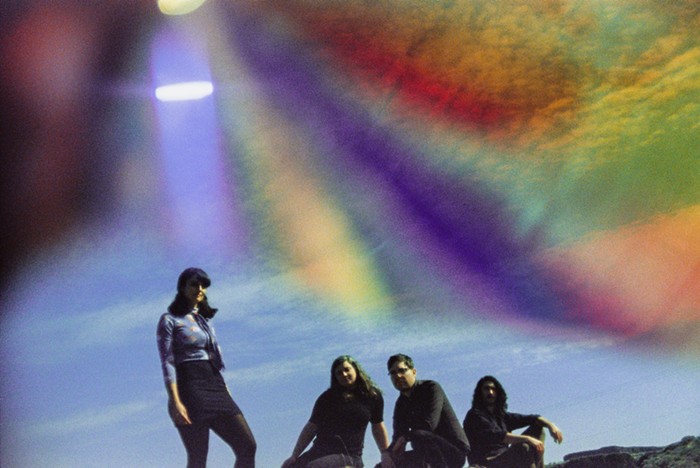A real character with an affable, toothless smile, R. L. Burnside, the Mississippi hill country bluesman and ex-con, passed on at a hospital in Memphis on September 1 at age 78. For most of his life, Burnside was an undiscovered talent who made a living as a sharecropper, playing guitar on the side. It wasn't until he was in his 60s that the upstart Mississippi label, Fat Possum, recorded a bunch of kickass records controversially matching his raw and feisty electric blues sound with rock and hiphop remixes. Burnside found a whole new audience, not only outside the Mississippi juke joints where he was paid $3 and some whiskey per gig, but beyond the blues festival circuit as well. Opening for the Beastie Boys and the Jon Spencer Blues Explosion, Burnside was a hit with the alternative rock crowd and eventually became successful enough to support his 12 kids and numerous grandchildren.
Burnside grew up in the vicinity of Oxford, Mississippi, where the great Mississippi Fred McDowell was on hand to give him some of his first guitar lessons. When Burnside sang in church as a boy, his mother liked the music, but she wasn't so happy when he switched to playing blues guitar.
In his 20s, Burnside followed his family to Chicago. During this period, he met Muddy Waters, who had married his first cousin. But his Chicago experience was a disaster. In unrelated incidents, most of his family—his father, two brothers and an uncle—were murdered.
Burnside returned to Mississippi, but trouble followed him. In an episode that he seemed to enjoy recalling, he once killed a man. The fellow had come to his house, Burnside claimed, upset that he had lost $400 to Burnside in a game of dice. In the documentary You See Me Laughin', which chronicles the story of Fat Possum Records, Burnside said of the killing, "I didn't kill him now. I just shot him. I told him it's between him and the Lord about dying, you know." Burnside shot him twice in the head and once in the chest and was given five years in prison. He claimed to have served only six months of his sentence because the man he worked for got him sprung to work the cotton harvest.
Blues folklorist George Mitchell finally caught up with Burnside in 1968 and was the first to record him. Those acoustic sessions (re-released by Fat Possum in 2003 as First Recordings) are among Burnside's finest, but they hardly made him a star. He remained a local entertainer through the '70s and '80s. It wasn't until a skinny white boy named Matthew Johnson rediscovered him in the '90s and signed him to Fat Possum Records that Burnside finally had his day in the sun.
Johnson paired him with the Jon Spencer Blues Explosion, the briefly hip, though quickly detested New York blues-rock group, on the raucous jam record A Ass Pocket of Whiskey. It's debatable whether this collaboration or Fat Possum's efforts to remix some of Burnside's tunes really worked or not. Nearly a decade ago, those moves caught a lot of flak. But Fat Possum provided a source of income to Burnside, who was quietly living out the end of his life in rustic squalor, and rescued his music, which otherwise might never have been recorded.
Burnside's sound was completely within the tradition of barebones Northern Mississippi blues. Many of his best tunes were reinterpretations of songs made famous by locals like Muddy Waters, Howlin' Wolf, and Ranie Burnette. But he also composed many of his own tough-luck songs, including some of his signature material like "Snake Drive" and "Rollin' Tumblin.'" Earlier in his career, Burnside usually performed solo, but as he got older and his family grew larger, his sons and grandsons ably backed him up as a band called the Sound Machine. In recent years, before Burnside retired from touring, he performed onstage sitting down as part of an absolutely rippin' trio, which included his neighbor, guitarist Kenny Brown, and Burnside's grandson, Cedric, on drums.
A badass as a youngster, Burnside definitely had the cuddly grandpa thing going for him in his later years. But he never stopped drinking whiskey, playing cards, and kicking up some rough-and-tumble music. Sadly, he was one of the very last of the great Mississippi bluesmen.
editor@thestranger.com

















